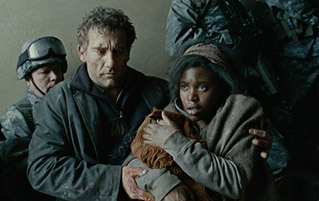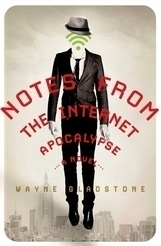5 Movies That Don't Get Enough Credit for Being Tearjerkers

When I was a little boy, I used to make fun of my dad for crying at movies. So did my mom. It was just too easy to push his buttons. I remember a great wave of water vapor emanating from his seat during the ending of E.T., but all the movies known for producing tears never did a thing for me. Terms of Endearment, Beaches, Titanic, and The Notebook all left me cold.

Worst wet T-shirt scene ever.
But as I got older, I did become more like my father, and the tears began to flow. It's not that movies changed so much, but that my number of significant life experiences increased. Suddenly, make-believe movies are able to trigger real memories that matter. Still, it isn't the obvious tearjerkers that get to me. Movies that kill off children or puppies after making you love them only piss me off. Big, overwrought, obvious love stories also do nothing for me. It's the movies that tap into the less obvious moments of a character's humanity that always destroy me. Here are five of the best movies for making a mess of me by using less obvious emotional triggers.
Children of Men: The Freedom to Rebel
Children of Men, the 2006 film directed by Alfonso Cuaron and starring Clive Owen and Julianne Moore, is one of my favorite movies of all time. People talk about it in terms of being some 1984-esque dystopian future England where the world has gone inexplicably infertile, and while that's not wrong, it misses a lot. Despite its high-concept sci-fi conceit, Children of Men is not a cold, stylish film. Instead, the movie's conceit is examined through the lives of very real characters.
After nearly 20 years of infertility, society is on the verge of collapse, and Theo (a former activist turned civil service worker) helps keep a pregnant African refugee safe in England -- the last functioning society on Earth. I actually cry all the way through this movie, but I tried to pick one scene to highlight. At one point, Theo seeks refuge at the country home of Jasper Palmer, played by Michael Caine. Jasper is a former editorial cartoonist who cares for his wife, who is completely catatonic after being brutally tortured years earlier for her work as a photojournalist. Here is a couple that fought The Man and lost. And now the fight is taken from them. Jasper's wife cannot speak and requires constant care. Jasper must keep his head down and keep himself alive so he can care for her. He provides shelter for Theo, and it brings trouble his way. Jasper knows his wife will die of starvation without his care, so he euthanizes her and goes out to meet his certain death. But standing as one man alone, he can tell The Man to fuck off for the first time in years.
The Grapes of Wrath: The Compassion of the Working Class
When people think of the big scene from the 1940 classic adaptation of John Steinbeck's The Grapes of Wrath, they usually think of Henry Fonda's famous monologue as Tom Joad. And surely that is one of the great moments in 20th century film, but that is not the part of the film that destroys me.
Instead, the scene comes from Chapter 15 of the book. The Joads, a family of poor, starving Dust Bowl farmers, are heading West, looking for work. They stop at a truck stop, hoping to buy some day-old bread. The grandfather is accompanied by his two small grandchildren. The truck stop is filled with a tough-talking no-nonsense waitress and her gruff truck-driving patrons. They are not refined or friendly people.
I'd love to play the scene for you, but I cannot find it anywhere online. I can only find the chapter, and I encourage you to read it. Essentially, the grandfather gets into an argument with a waitress, who initially refuses to sell the Joads a loaf of bread instead of items from the menu like sandwiches and hamburgers. The Joads can only afford a loaf for the whole family. The waitress relents and sells the grandfather a loaf for 10 cents, and when he puts down his dime, a penny is sticking to it. He's about to return the penny to his pocket when he sees his grandkids eyeing the candy at the counter, and he asks if it's penny candy. Seeing the kids, the waitress says the candy is actually two for a penny. The grandfather takes two candies and leaves.
When the Joads are gone, a truck driver tells the waitress she's lying because the candy is five cents apiece. "What's it to you?" the waitress says fiercely. The truck driver pays his bill and goes to leave. The waitress tells him he has change coming, to which he replies, "Go to hell," and leaves. The driver, seeing her personal sacrifice, has left her a half-dollar tip. And although I can't find a clip, here is a song Kris Kristofferson wrote about it.
The scene kills me. Not just because it's about the milk of human kindness, but because it shows something I believe to be true: Some of the kindest, best people you will ever meet can be coarse and loud and mean until you really see what's inside.
UPDATE - EDIT: Thanks for finding the clip, "Hassenbenfedyet!" (The dialogue is a little different from the book passage I cite . . . )
A.I.: The Cruelty of Imprinting
Some people cry at A.I., the Stanley Kubrick/Stephen Spielberg sci-fi Pinocchio story, because it's very sad that this sentient robot named David wants to be a real boy. No doubt about it. It's sad.

Others cry that they can't drive into a lady's waiting mouth in real life.
And that's fine. That sure is sad, but that's not why A.I. makes me cry. Y'see, A.I. is the story of a mother mourning her son while he battles an illness in a cryogenic state. In her pain, she turns to a new droid son. In order to fully bond with the droid, she imprints herself into his brain. At this point, he has no choice but to love her. It's his program. And that really sucks, because when her son gets well, the woman tells David to get lost. Yes, she can't actually bring herself to have him deactivated, but she still abandons him. If you accept David as real, then yeah, she's a pretty awful mom.
And that's what makes the imprinting scene so painful. Aren't we all to a certain extent fated to love our parents? To need them? Isn't it almost in our very DNA to need those who brought us into the world? And isn't it also true that sometimes those people don't deserve our love? Yes, and that is the cruel fate of children born to bad parents. They still get the benefit of a child's need and love. Knowing the abandonment that's to come, this scene (from 2:39 to 5:00) is almost unwatchable.
What Dreams May Come: The Destruction That Comes From True Love
Boy, people are forgetting about this film quickly. Maybe it's because it's impossible to say the title without sounding like you're saying "Wet Dreams Gay Cum," which was the gay porn parody.

"Um, no. I don't think that's the reason. What's wrong with you?"
What Dreams May Come is based on the 1978 novel by the great Richard Matheson. The movie tells the story of a man whose wife was institutionalized after they lost their children in a car crash. The wife/mother falls into a suicidal depression, while the husband/father tries to stay strong. Years later, the husband too dies in a car accident, and his wife finally succumbs to sadness and commits suicide.
The majority of the film deals with the man reuniting with his children and experiencing the joys of heaven, but when he learns his wife's suicide has fated her to hell, he travels to the underworld to save her. For my money, that's a little more exciting than letting some selfish bimbo hog all of the driftwood while you freeze to death.

MOVE OVER!!!
But What Dreams May Come doesn't get me because of some grandiose gesture that saves the day, despite what the trailer might lead you to believe:
Instead, the husband's grand gesture is not to save his wife. She is lost. She is insane. She is in hell. And he decides to sit by her side forever. It's something he refused to do in real life. When she went mad with grief over the loss of the children, he soldiered on while she was institutionalized. He makes amends now, for eternity. And seeing that act of selfless devotion, she is stirred from illness and damnation, and saves them both.
Lorenzo's Oil: The Strength to Let a Child Die
OK, so I hear you now. You're saying, "What are you talking about, Gladstone? Lorenzo's Oil is about dying kids. How is that not an obvious tearjerker?!" Oh, wait a second. I just remembered you're 19. You're not saying that at all. You're saying, "Ohhhhhhh, now I get that joke from Paul!"

Agent Lorenzo Zoil.
In any event, yes, Lorenzo's Oil is the true story of Augusto and Michaela Odone's search for a cure for their son's adrenoleukodystrophy -- a nightmarishly debilitating and previously fatal disease. But here's the amazing thing about Lorenzo's Oil. Despite what I just told you, there is nothing melodramatic about this movie. It does not show how cute and lovely Lorenzo is and then say "Cry now, motherfuckers, cause he's dead." It also does not show you an afflicted child and then say "Cry now, motherfuckers, he's cured!!!" Neither of those events happens in this painfully honest movie about death and disease.
Lorenzo gets ill in the first few minutes of the film because this is a movie that studies how one family dealt with a death sentence for their child. The Odones' search for a cure did not save their child, but it did lead to the discovery of medicine or "oil" that arrested the destructive progression of the disease. For other children, diagnosed early on, that means the preservation of their quality of life.
So why is this a truly unique tearjerker? Well, as you can imagine, there are support groups for the parents whose children are afflicted with this horrific disease. And because this disease typically carried a fatal prognosis, the main point of the group was to support each other during the inevitable death of their children. The Odones were outliers, however, because they were searching for a cure, and at one point mother Michaela Odone is referred to as being merely selfish because of her inability to let go. Her hopeless fight is seen as only prolonging her child's suffering, because she is too weak to let go.
That's why later, when we see this mother cradle her now speechless, afflicted child and lets him know that if the pain is too much, he has her permission to fly away to the baby Jesus, you will either bawl your eyes out or go back to systematically strangling puppies, as is your practice.

Clip not available online, which is probably for the best if you need to not be publicly crying for 16 hours today.

GLADSTONE'S NOTES FROM THE INTERNET APOCALYPSE IS ON SALE NOW!
After experiencing the joy of purchasing Book 1 of the trilogy, be sure to follow Gladstone on Twitter.
Also, you can get all your Internet Apocalypse news here.
